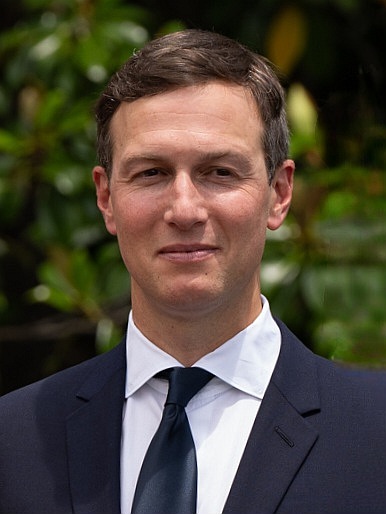Über Informationsfreiheit als Menschenrecht, die Brutalität digitaler Zensur, und was du heute noch dagegen tun kannst.
Es gibt einen Moment, in dem Zensur aufhört, ein abstraktes politisches Konzept zu sein, und zu etwas ganz Konkretem wird: wenn eine Mutter in Teheran nachts ihr Telefon in die Hand nimmt und ihr Kind nicht erreichen kann. Wenn Proteste aufflammen, wenn Menschen auf den Straßen sterben, wenn Augenzeugenvideos das Land nicht verlassen dürfen. Wenn der Staat nicht nur schießt, sondern gleichzeitig das Licht ausmacht.
Wir leben in einer Zeit, in der Information nicht mehr nur Macht ist, sie ist Überleben. Und wer über Information herrscht, herrscht über Realität. Das wissen Diktatoren. Das wissen autoritäre Regime. Das wissen auch einige demokratisch gewählte Regierungen besser, als ihnen lieb sein sollte. Die Frage ist: Wissen wir es auch?
Iran, Januar 2026: Das brutalste Kommunikationsmassaker der Neuzeit
Was derzeit im Iran passiert, ist kein Internet-Shutdown. Es ist ein vollständiges Auslöschen der öffentlichen Kommunikation, und es ist das schlimmste in der Geschichte des Landes.
Die Proteste begannen am 28. Dezember 2025. Auslöser war der katastrophale Verfall der iranischen Währung, massive Inflation, wirtschaftliche Hoffnungslosigkeit. Aber innerhalb weniger Tage wurden aus Protesten gegen die Wirtschaftspolitik Rufe nach dem Sturz des Regimes. Zehntausende Menschen in Dutzenden Städten. Ein Aufstand.
Am 8. Januar 2026, am zwölften Tag der Proteste, zog das Regime den Stecker. Nicht an einem Plattform, nicht an einem Dienst, am ganzen Land. Mobilfunkmasten wurden deaktiviert. Telefon- und Festnetzleitungen wurden gekappt. Das nationale Intranet, das sogenannte National Information Network (NIN), das der Iran in jahrelanger Arbeit als Parallelstruktur zum globalen Netz aufgebaut hatte, war komplett abgeschaltet, nicht nur nach außen, sondern auch innerhalb des Landes. Laut Cloudflare Radar fiel der iranische Internetverkehr auf einen Bruchteil eines Prozents des normalen Wertes. Die Bevölkerung wurde in absolute digitale Dunkelheit gestürzt.
Das ist keine Übertreibung. Das ist der technische Befund.
Was folgte, entbehrt jeder Beschreibung. Amnesty International dokumentierte, dass zwischen dem 31. Dezember 2025 und dem 3. Januar 2026 mindestens 28 Protestierende und Unbeteiligte in 13 Städten erschossen wurden, darunter Kinder. Und das sind nur die verifizierten Zahlen aus dem Zeitraum, bevor die vollständige Abschaltung weitere Dokumentation unmöglich machte. Schätzungen der Gesamtzahl der Todesopfer liegen mittlerweile zwischen 2.000 und 40.000. Diese extreme Spanne ist kein Fehler, sie ist das direkte Ergebnis der Informationsblockade. Niemand weiß es genau, weil niemand berichten konnte.
Das ist Methode, keine Panne. Amnesty International nannte es beim Namen: Der Shutdown ist nicht nur ein Mittel zur Unterdrückung von Protest, er ist selbst eine schwere Menschenrechtsverletzung. Er schützt Security-Kräfte vor Dokumentation. Er verhindert, dass Bilder das Land verlassen. Er isoliert Protestierende voneinander, verhindert Koordination, bricht den psychologischen Schwung einer Bewegung. Wer Information kontrolliert, kontrolliert die Erzählung. Und wer die Erzählung kontrolliert, kann Massaker leugnen.
Das Regime versuchte zudem, Starlink-Terminals zu beschlagnahmen, insgesamt 158 konfiszierte Geräte wurden dokumentiert. Die USA schmuggelten daraufhin laut Berichten 6.000 weitere Terminals ins Land. Ein bizarrer Satelliten-Untergrundkampf um Bandbreite, mitten in einem Volksaufstand.
Besonders aufschlussreich ist, was Foreign Policy als "digitale Apartheid" beschrieb: Seit Juli 2025 gibt es im Iran ein formalisiertes Zweiklassen-Internet. Regierungsbeamte, Sicherheitskräfte und ausgewählte Journalisten erhalten sogenannte „White SIM Cards", Mobilfunkverträge, die am staatlichen Zensursystem vorbeigeleitet werden und vollen Zugang zu Instagram, WhatsApp und Telegram ermöglichen. Der Rest der Bevölkerung navigiert ein Labyrinth aus gesperrten Ports und instabilen VPNs, wenn überhaupt. Loyalität wird mit Konnektivität belohnt. Widerstand wird mit digitaler Isolation bestraft.
Und das alles hat einen wirtschaftlichen Preis, den das Regime sehr wohl kennt und offenbar bereit ist zu zahlen. Der Kommunikationsminister räumte ein, dass der Shutdown die Wirtschaft täglich 35,7 Millionen Dollar kostet. Online-Umsätze brachen um 80 Prozent ein. Die Teheraner Börse verlor massiv an Wert. Das Regime nimmt diesen wirtschaftlichen Kollaps in Kauf, weil der politische Nutzen der Informationskontrolle den wirtschaftlichen Schaden überwiegt. Deutlicher kann man nicht zeigen, wie hoch Informationsfreiheit auf der Prioritätenliste einer Diktatur steht: ganz unten.
Das ist keine neue Geschichte, das ist System
Der Iran ist kein Ausreißer. Er ist Vorreiter und Exporteur einer Technologie der Unterdrückung, die weltweit Schule macht.
Bereits 2019, als Benzinpreisproteste das Land erschütterten, verhängte das Regime einen sechstägigen totalen Internet-Blackout. Der Grund war offen politisch: Massenproteste sollten von globalen Augen abgeschirmt werden, während die Sicherheitskräfte brutal vorgingen. 2022, nach dem Tod von Mahsa Amini in Polizeigewahrsam, wiederholte sich das Muster. Die Bewegung „Frau, Leben, Freiheit" erschütterte das Regime so sehr, dass WhatsApp und Google Play über Jahre blockiert blieben. Instagram ist bis heute gesperrt.
China war das Labor, der Iran ist das Praxisbeispiel. Die sogenannte Great Firewall, die China über Jahrzehnte aufgebaut hat, ist kein einfacher URL-Filter. Sie ist ein Kontrollsystem mit Deep Packet Inspection, einer Technologie, die Datenpakete inhaltlich analysiert und Umgehungsversuche in Echtzeit erkennt. Google existiert nicht. Wikipedia existiert nicht. YouTube, Instagram, Twitter, WhatsApp, Facebook, alles verschwunden, ersetzt durch staatlich überwachte chinesische Pendants. Über 1,4 Milliarden Menschen leben in einem Internet, das wie ein nationales Intranet funktioniert: verbunden nach innen, kontrolliert nach außen. Das ist keine Zensur im klassischen Sinne. Es ist die Umgestaltung der Realität selbst.
Myanmar zeigt, was passiert, wenn ein Militärjunta-Regime die chinesische und iranische Blaupause importiert. Nach dem Putsch von 2021 folgten zunächst komplette Shutdowns, dann gezieltere Kontrollen, mit direkter technischer Unterstützung aus China, Russland und Indien. Heute setzt das Militär biometrische Datenbanken, Gesichtserkennung und digitale IDs ein, um Oppositionelle zu verfolgen. Das Netz ist zum Überwachungsinstrument geworden.
Russland versucht seit Jahren, ein eigenes „Runet" aufzubauen, ein vom globalen Internet trennbares nationales Netz. Seit 2022 sind Instagram, Facebook und Twitter/X offiziell blockiert. Nach dem Beginn des Angriffskrieges auf die Ukraine intensivierte das Regime die digitale Kontrolle massiv. Unabhängige Medien wurden verboten, kritische Berichterstattung unter Strafe gestellt. Der Krieg findet nicht nur auf Schlachtfeldern statt, sondern auch in Newsfeeds.
Belarus, Äthiopien, Sudan, Kenia, die Demokratische Republik Kongo, Bangladesch, die Karte der Internet-Shutdowns liest sich wie ein Globus des autoritären Willens. Freedom House dokumentierte 2025 den fünfzehnten aufeinanderfolgenden Rückgang globaler Internetfreiheit. Fünfzehn Jahre in Folge. Das ist kein Zufall. Das ist Trend.
Und jetzt schau nach Westen, es ist nicht so weit weg, wie du denkst
Der bequeme Gedanke ist: Das betrifft uns nicht. Wir haben Pressefreiheit. Wir haben das Grundgesetz. Wir haben ein „freies Internet".
Aber was genau ist frei daran, wenn drei oder vier Konzerne darüber entscheiden, was 3 Milliarden Menschen lesen, sehen und teilen dürfen?
Meta und die Auslöschung queerer Räume
Im Januar 2025 kündigte Mark Zuckerberg eine vollständige Überarbeitung der Moderationsrichtlinien für Facebook, Instagram und WhatsApp an. Der Kern: Fact-Checker werden abgeschafft, die Hassrede-Politik wird ausgehöhlt. Was das konkret bedeutet, steht in den neuen Meta-Community-Standards schwarz auf weiß: Es ist nun ausdrücklich erlaubt, LGBTQ+-Menschen als „psychisch krank" oder „abnormal" zu bezeichnen. Aufrufe zur Ausgrenzung von trans Personen aus dem Militär, dem Lehrberuf, dem Polizeidienst sind zulässig. Frauen können mit Haushaltsgegenständen verglichen werden. Ethnische Gruppen können als „Dreck" bezeichnet werden, solange die Zielgruppe nicht in einer der noch verbleibenden Schutzkategorien ist.
Das ist keine Lücke in einer ansonsten guten Richtlinie. Das ist eine politische Entscheidung, die von Meta im Angesicht einer Trump-Regierung getroffen wurde, der man gefällig sein wollte.
Was folgte, überrascht wenig: Ab Oktober 2025 wurden mehr als 50 Organisationen weltweit von Facebook, Instagram und WhatsApp entfernt oder shadowgebannt, Abtreibungshotlines, queere Beratungsstellen, Organisationen für Reproduktionsrechte. In Ländern, wo Abtreibung legal ist. Repro Uncensored, eine NGO, die digitale Zensur gegen Gender- und Gesundheitsbewegungen dokumentiert, zählte 2025 über 200 dokumentierte Fälle von Account-Entfernung oder schwerer Einschränkung, mehr als doppelt so viele wie im Vorjahr. Der Human Rights Campaign und GLAAD zufolge berichten 75 Prozent der befragten LGBTQ+-Nutzenden, dass hassbezogene Inhalte seit Januar 2025 stark zugenommen haben. 77 Prozent fühlen sich weniger frei, sich auf Meta-Plattformen zu äußern.
Die Electronic Frontier Foundation nennt es beim Namen: Meta hat eine lange, klare und störende Geschichte darin, marginalisierte Communitys zum Schweigen zu bringen. Und gleichzeitig, das ist die Perversität des Systems, erlaubt dieselbe Plattform nun Hassrede gegen genau diese Gruppen, die sie andererseits zensiert, wenn sie über ihre eigene Unterdrückung sprechen.
Das ist keine neutrale Infrastruktur. Das ist politisch motivierte Kontrolle über den Diskurs, die von einem Konzern ausgeübt wird, der niemandem gegenüber rechenschaftspflichtig ist außer seinen Aktionären.
TikTok und die gefährlichste Frage: Wer darf zensieren?
Am 19. Januar 2025 trat in den USA das „Protecting Americans from Foreign Adversary Controlled Applications Act" in Kraft und verbot TikTok effektiv für 170 Millionen amerikanische Nutzerinnen. Der Supreme Court nickte ab. Die Begründung: nationale Sicherheit, chinesische Datenzugriffe, mögliche Manipulation des Algorithmus.
Das klingt vernünftig, bis man anfängt, die Fragen zu stellen, die niemand laut stellt.
Die USA haben kein umfassendes Datenschutzgesetz. Die Daten, die TikTok sammelt, sammeln auch Facebook, Google und Hunderte von Datenbrokern, und verkaufen sie unreguliert weiter. Es gibt keinen dokumentierten Beweis, dass China tatsächlich auf US-Nutzerdaten über TikTok zugegriffen hat. Und Politiker haben in Anhörungen offen zugegeben, dass ein wesentlicher Grund für den Bann schlicht war, dass ihnen nicht gefiel, was Menschen auf der Plattform sagten, insbesondere über den Krieg in Gaza, der auf TikTok deutlich kritischer diskutiert wurde als auf anderen US-Plattformen.
ACLU, EFF und das Knight First Amendment Institute waren unmissverständlich: Das Gesetz ist ein Angriff auf die First Amendment-Rechte von 170 Millionen Menschen. Es schafft einen Präzedenzfall, nach dem jede Plattform verboten werden kann, wenn die Regierung sie als sicherheitsrelevant deklariert. Dieser Präzedenzfall existiert jetzt. Er wartet darauf, genutzt zu werden.
Und dann ist da noch die bittere Ironie: Die Logik, mit der US-Gerichte TikTok verboten haben, staatliches Interesse an Informationskontrolle überwiegt individuelles Recht auf Meinungsfreiheit, ist strukturell identisch mit der Logik, die das iranische Regime zur Rechtfertigung seiner Shutdowns verwendet. Der Unterschied ist graduell, nicht prinzipiell.
Die Epstein-Akten: Informationskontrolle durch Überflutung
Im Dezember 2025 veröffentlichte das US-Justizministerium die sogenannten Epstein-Akten, Millionen von Dokumenten über das Netzwerk des verurteilten Sexualstraftäters Jeffrey Epstein, der 2019 unter mysteriösen Umständen in Untersuchungshaft starb. Ein Netzwerk, das die mächtigsten Männer der Welt zusammenbrachte: Politiker, Milliardäre, Köpfe aus Wissenschaft und Unterhaltungsindustrie.
Was dann geschah, ist ein Lehrstück in moderner Informationskontrolle, nicht durch Verbote, sondern durch das Gegenteil davon.
Die Dokumente wurden als unstrukturierter Datenhaufen veröffentlicht. Drei Millionen Seiten ohne Kategorisierung, ohne Index, ohne Kontext. Dazu Schwärzungen, von denen viele schlicht und einfach nicht funktionierten, Nutzerinnen konnten geschwärzten Text durch simples Kopieren und Einfügen sichtbar machen. Wichtige Namen wurden sorgfältig entfernt, während der Rest als unleserliches Rauschen übrig blieb. Al Jazeera Media Institute beschrieb das treffend: In einer Zeit, in der traditionelle Zensur nicht mehr funktioniert, wird Information durch ihre Menge unleserlich. Man muss nichts verbergen, wenn man alles auf einmal veröffentlicht und niemand mehr den Überblick hat.
Auf TikTok wurden unterdessen direkte Nachrichten, die das Wort „Epstein" enthielten, von automatisierten Systemen mit Warnungen versehen. Ernsthafte Diskussion wurde gebremst; Memes und Ironie liefen ungehindert. Das Ergebnis: Ein Fall von systematischem sexuellem Missbrauch, der Eliten auf höchster Ebene umfasst, wurde zu Internet-Folklore degradiert. Nicht durch Verbote. Durch Reibung. Durch Rauschen. Durch algorithmische Deprioritisierung.
Das ist die neue Zensur. Nicht das Verbot, sondern die Unsichtbarkeit.
Warum das alles zusammenhängt
Es wäre einfach, diese Phänomene getrennt zu betrachten: den iranischen Shutdown als Diktatur-Problem, den TikTok-Bann als Amerika-Problem, die Meta-Zensur als Konzern-Problem und die Epstein-Akten als Korruptions-Problem. Aber das wäre eine politische Blindheit, die wir uns nicht leisten können.
Was sie verbindet, ist eine einzige Logik: Wer Informationsfluss kontrolliert, kontrolliert politische Realität.
Autoritäre Staaten tun das per Gesetz und Gewalt. Konzerne tun es per Algorithmus und Geschäftsstrategie. Demokratische Regierungen tun es per Jurisprudenz und nationaler Sicherheitsrhetorik. Die Methoden unterscheiden sich, das Ergebnis ähnelt sich: Bestimmte Stimmen werden lauter, andere leiser. Bestimmte Geschichten zirkulieren, andere verschwinden. Bestimmte Proteste finden statt, andere werden im Ansatz erstickt.
Und Überwachungstechnologien reisen. China hat im Iran nachweislich Gesichtserkennung eingesetzt, dieselbe, die in der Verfolgung der Uiguren zum Einsatz kommt. Spyware-Software wie Pegasus findet ihren Weg in die Smartphones von Aktivistinnen auf allen Kontinenten. Was in einem Land als „Anti-Terror-Maßnahme" erprobt wird, landet Jahre später als kommerzielle Dienstleistung auf dem globalen Markt. Autoritäre Technik exportiert sich selbst.
Snowflake: Konkreter Widerstand statt Betroffenheitskultur
Genau an diesem Punkt kommt Snowflake ins Spiel. Nicht als heroische Geste, nicht als spektakulärer Akt des Widerstands, sondern als konkreter, struktureller Beitrag zu einem dezentralen Gegenmodell.
Snowflake ist ein Projekt des Tor Project. Es verschleiert Tor-Verbindungen so, dass sie wie normaler Browser-Traffic aussehen, und macht es für Zensur-Systeme damit extrem schwer, diese Verbindungen zu blockieren. Wer Snowflake auf seinem Computer betreibt, stellt einen kleinen Teil Bandbreite zur Verfügung und wird zur Durchgangsstation für Menschen, die in gesperrten oder zensierten Netzen sitzen.
Das Wichtige dabei: Du siehst keine Inhalte. Du bist kein Ausgangspunkt für Datenverkehr. Du bist eine verschlüsselte Brücke. Das Betreiben eines Snowflake-Proxys ist in Deutschland, Österreich und der Schweiz vollkommen legal. Je mehr Menschen mitmachen, desto schwieriger wird es für autoritäre Regime, diese Verbindungen zu unterbinden. Dezentralität ist der einzige strukturelle Vorteil, den wir gegen zentralisierte Staatsmacht ausspielen können.
Ich betreibe selbst mehrere Snowflake-Proxies auf eigenen Servern, dauerhaft, nicht nur, wenn ich gerade daran denke. Weil ich glaube, dass Antifaschismus im digitalen Zeitalter bedeutet, Infrastruktur bereitzustellen, nicht nur Statements zu posten.
Anleitung: In fünf Minuten aktiv werden
Du brauchst keinen Server. Keine Kommandozeile. Keine technischen Kenntnisse.
Für Firefox: Installiere die offizielle Snowflake-Erweiterung aus dem Firefox Add-on Store. Nach der Installation erscheint ein Schneeflocken-Symbol in deiner Symbolleiste. Klick drauf, aktiviere den Toggle. Fertig. Der Proxy läuft im Hintergrund, solange dein Browser offen ist.
Für Chrome, Brave oder Chromium: Die entsprechende Erweiterung findest du im Chrome Web Store. Gleiche Prozedur.
Im Addon-Popup siehst du, wie viele Verbindungen du gerade weiterleitest. Typisch sind null bis drei gleichzeitig. Die Bandbreite, die du bereitstellst, ist minimal, meist unter 10 KB/s, und du wirst es in deinem Alltag kaum bemerken. Du kannst den Proxy jederzeit pausieren oder deaktivieren.
Für alle mit eigenem Server: Snowflake läuft auch als dauerhafter Docker-Container ohne Browser. Das bedeutet 24/7-Unterstützung für das Netzwerk. Dokumentation und Setup-Anleitung finden sich im GitLab des Tor Projects.
Wenn du noch mehr tun willst
Das Tor-Netzwerk lebt von seiner Infrastruktur. Wer technischer unterwegs ist, kann eine Tor Bridge betreiben, einen nicht-öffentlichen Relay-Knoten, der schwieriger zu blockieren ist als öffentliche Nodes. Die Dokumentation dazu findet sich auf community.torproject.org.
Wer das Tor Project finanziell unterstützen möchte: donate.torproject.org. Das Projekt finanziert sich durch Spenden und Zuschüsse und ist einer der wichtigsten digitalen Freiheitsinfrastrukturen der Welt.
Wer über Internet-Shutdowns weltweit auf dem Laufenden bleiben und die politische Arbeit dagegen unterstützen möchte: accessnow.org dokumentiert, analysiert und bekämpft digitale Repression global.
Zum Schluss: Warum ich das nicht als Option betrachte
Informationsfreiheit ist kein Luxus progressiver Gesellschaften. Sie ist die Bedingung, unter der alle anderen Freiheiten erst möglich werden. Ohne das Recht, sich zu informieren, zu kommunizieren, zu organisieren, sind Meinungsfreiheit, Versammlungsfreiheit und politische Teilhabe leere Versprechen.
Wenn im Iran gerade Menschen sterben und die Welt es nicht sehen darf, weil ein Regime den Stecker zieht, dann ist das nicht weit weg. Das ist die Gegenwart. Das ist das Modell, das exportiert wird. Das ist die Richtung, in die sich Macht bewegt, wenn niemand widerspricht.
Ich betreibe Snowflake nicht aus Nostalgie für ein ideales Internet. Ich betreibe es, weil ich nicht akzeptiere, dass Konnektivität ein Privileg ist, das Regierungen und Konzerne nach Belieben vergeben und entziehen. Weil jede dezentrale Verbindung, die wir ermöglichen, ein kleines Stück Infrastruktur ist, das sich staatlicher und kommerzieller Kontrolle entzieht. Weil konkret schlägt symbolisch, wenn es um Systeme geht.
Und manchmal beginnt Systemwiderstand mit einem Browser-Addon.
----
Dieser Artikel darf geteilt, zitiert und weiterverbreitet werden, gerne mit Quellenangabe.
#digitaleRechte #Informationsfreiheit #Iran #Snowflake #Antifaschismus #InternetFreedom #Aktivismus #Tor #Meta #Zensur #InternetFreedom #DigitalFreedom #FreeTheInternet #KeepItOnline #InformationFreedom #DigitalRights #CensorshipIsViolence #NoInternetShutdown #InternetForAll #FreeSpeechOnline #DigitalActivism #HumanRights #StandUpToCensorship #DontMuteTheWorld #ResistCensorship #DecentralizeTheWeb #HumanRightsAreUniversal #StandWithIran #FreeIran #StopDigitalRepression #GlobalSolidarity #ProtestSupport #EqualityForAll #JusticeNow #FreedomToSpeak #RightsNotPrivileges #TechForGood #PowerToThePeople #SpeakTruthToPower #RightsMatter #OnlineFreedom #OpenInternet #DefendDemocracy #EndCensorship #PrivacyIsARight #SurveillanceState #NetFreedom


